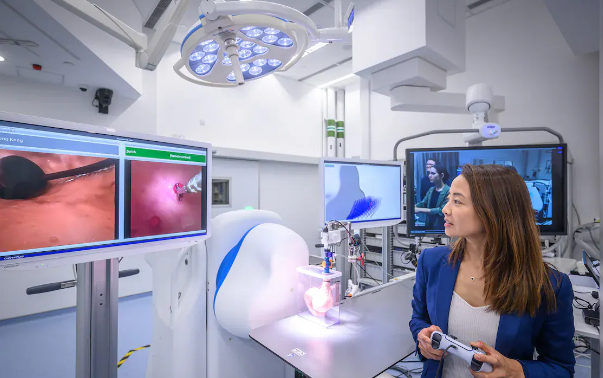Researchers from ETH Zurich and CUHK have achieved a remarkable feat in telemedicine by performing a teleoperated magnetic endoscopy surgery. The groundbreaking procedure, which involved a biopsy of a swine stomach wall, was conducted using a remote-controlled device.
The operation featured a Hong Kong-based clinician and a specialist in Zurich, Switzerland, working together. The Zurich expert controlled the procedure from a console using a video game controller, demonstrating the potential of remote surgical technology.
This innovation highlights the ability to provide specialized surgical care in remote regions, addressing the challenge of limited local expertise. The study, published in Advanced Intelligent Systems, underscores the transformative potential of telemedicine in expanding access to medical care.
Dr. Shannon Melissa Chan from CU Medicine emphasized that teleoperated endoscopy could revolutionize remote surgical training and patient care. It offers a promising solution for diagnosing and treating gastrointestinal cancers in areas with limited medical resources.
Professor Dr. Bradley Nelson from ETH Zurich discussed the future applications of this technology, including tele-endoscopy on human subjects. He noted its potential for cancer screening, gastrointestinal treatments, and other medical fields like neurovascular systems and fetal surgery.
The experiment utilized a magnetic endoscope controlled via an external magnetic field, allowing the Zurich surgeon to perform the procedure with a low latency of under 300 milliseconds. This success suggests that remote surgeries could soon be viable for various applications, including space missions and underserved locations.
The use of a game controller in such a high-tech setting reflects the growing intersection of technology and medicine, potentially opening new avenues for healthcare delivery and training. This advancement paves the way for future innovations in remote medical procedures and patient care.




